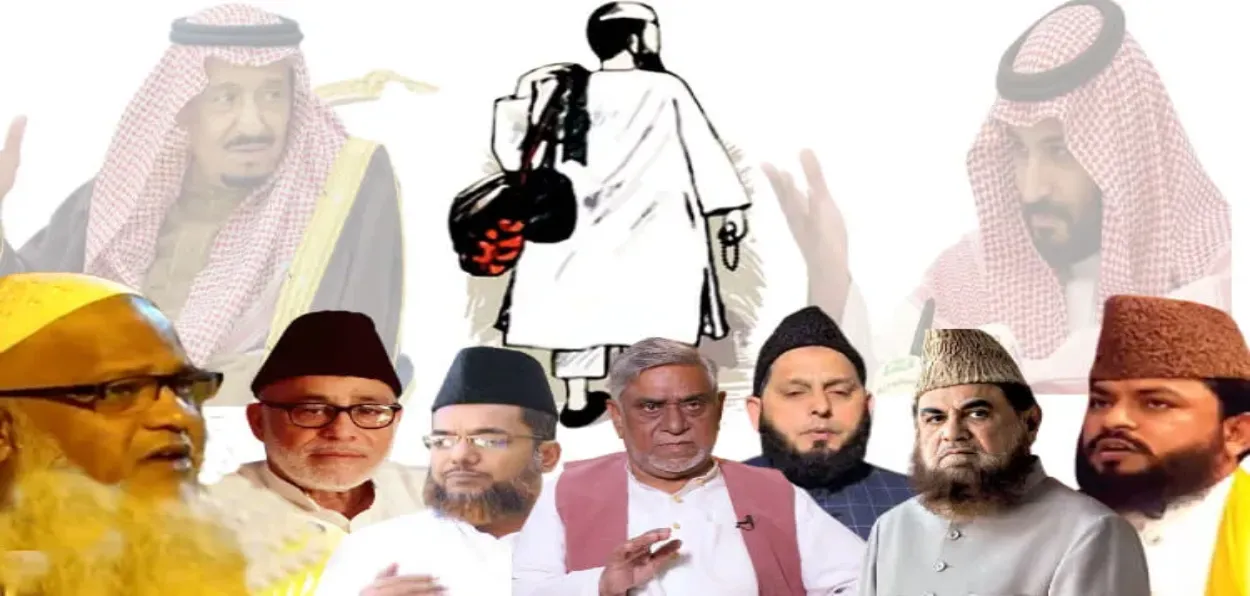
Dr Shujaat Ali Quadri
In recent years one of the most satisfying phenomena witnessed in religious circles is that extremist ideologies have found no takers among Indian Ulema. Barring some insane voices, Muslims have put up stiff resistance to maniacal moorings of the Islamic State of Iraq and Syria (ISIS) and Al Qaeda that have tried to make inroads into India.
We are also aware that the Ulema have been at the forefront of guiding masses and uniting them for national causes since the Colonial period. They have done so even at the cost of going to the gallows and spending a lifetime in jail. When the Muslim League was pursuing a disastrous two-nation formula, the ulema stood as a bulwark against separatism and chose Hindustan over Pakistan.
Similarly, the call to Muslims to join the ‘global jihad’ in Afghanistan in the 1980s came and about 100,000 volunteers responded from around the world, none was from India.
Is this enough? Is Ulema’s role in guiding Muslims over with this or they should have also tried to weave a new narrative for the betterment of Muslims and the growth of Islam?
Yes, they must embark on such a mission immediately.
India with 180 million Muslims has the second-largest Muslim community in the world. Their opinion, stances, and narratives echo widely in the world. Their rejection of extremist doctrine and action comes from India’s innate syncretism that has fostered an extraordinary pluralistic culture. These values are enshrined in the Indian constitution that has shaped the country as a secular democracy. It has been noticed and admired throughout the globe.
Yet another amazing aspect of Indian Muslims’ lives is that this is the only country where they have enjoyed 75 years of continuous democracy and full religious freedom.
As India and the world are moving into an age of scientific advancement and a knowledge economy, the ulema have to take up their responsibilities seriously and without much ado. They have to tell it loudly and clearly that Islam mandatorily emphasizes on modern education and strengthening democracy. Both democracy and scientific education are hallmarks of modern life and without these, no society can grow and make progress.
The ulema must also take the lead in the modernization of madrasas that are still dens of regression and deprivation in Muslim thoughts. Unless madrasas are modernized along the lines of modern institutions, their existence serves little purpose other than helping the impoverished gain some education. Instead of waiting for the government to modernize them in a sarkari and sluggish set-up, the ulema should ensure that there will be madrasa boards in every state and every seminary will be revamped.
The more we say about the decadence of Muslim institutions and properties like dargahs, mosques, and Wakf assets, the more we will despise their current state. The ulema must counsel the concerned authorities for a changeover or at least some makeover of these institutions.
The ulema take part in electoral politics, and they must agree against the use of Islam or the name of some prominent Islamic personalities to get votes for candidates.
India is a pluralistic country and Indian Muslims have another distinction of being special as they live in a vibrantly diverse society. Thus, their religious class, or ulema, must be champions of this diversity. They must realize that Sufism is the soul of Indian Islam and propagate that. Still, when it comes to actively endorsing and, sometimes even participating, in festivities of other religions, the ulema haven’t been very enthusiastic. Sometimes, it even leads to heartburn and tension. India has to free itself from such abominable periodic tension.
The above points may be good for the beginning of the ulema to build a new narrative for Muslims and India. They must strive for the sake of their community and country.
(The Author is the Chairman of the Muslim Students Organisation of India)
